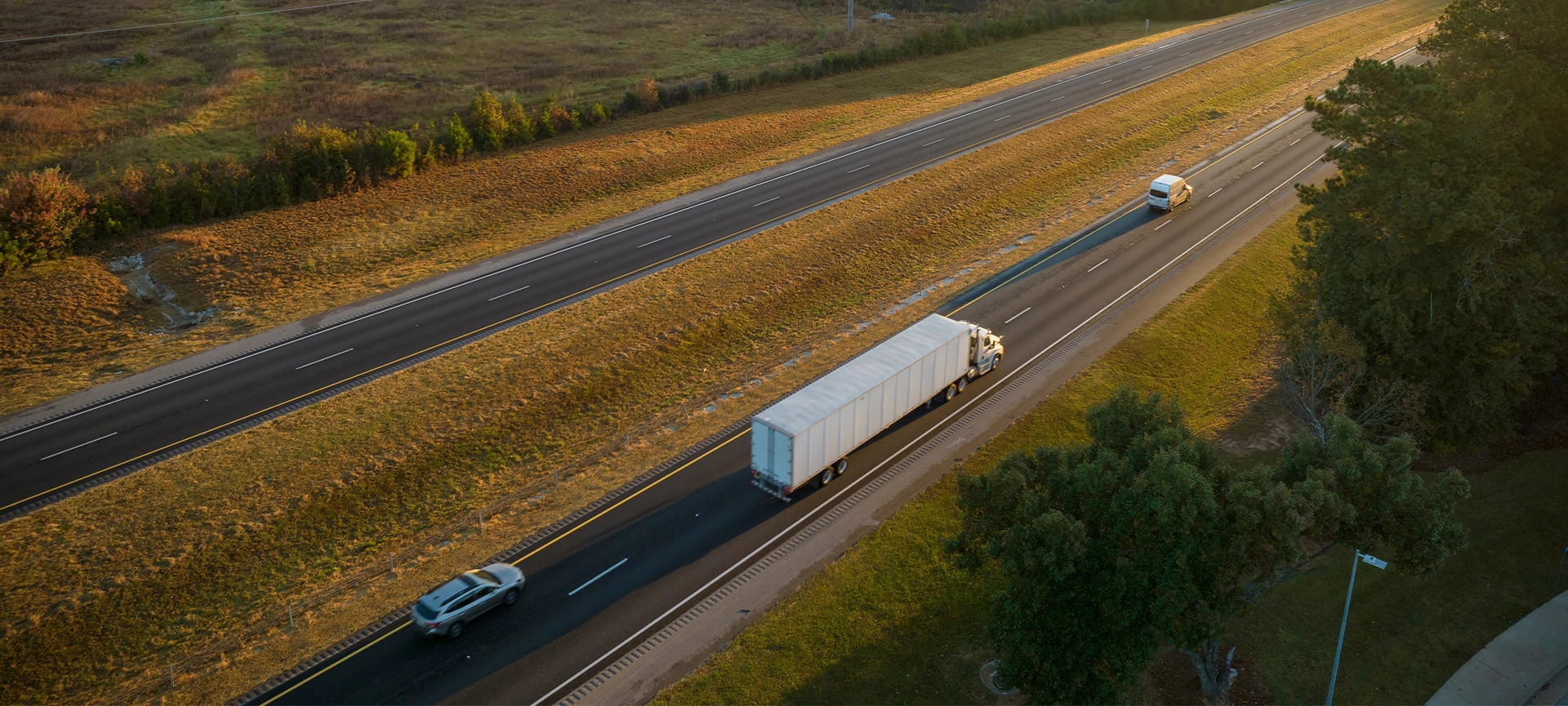Thinking of moving from Ontario to Alberta? You’re not alone. Thousands of Canadians are making the move every year for better job opportunities, lower housing prices or a fresh start.
Alberta has wide open spaces, a strong economy and a growing population. But before you pack up and head west, you need to know what the move really means.
Why Move from Ontario to Alberta?
Ontario is Canada’s most populous province, home to Toronto, Ottawa and a dense urban lifestyle. Alberta has cities like Calgary and Edmonton and stretches of rural space filled with natural beauty and a lower cost of living. The cost of living in Alberta is significantly lower than in Ontario, especially when it comes to housing.
In Alberta, property taxes are lower, car insurance is cheaper, and groceries are more affordable. There’s no provincial sales tax (PST,) which adds up to big savings over time. Housing prices in cities like Edmonton and Red Deer are 30-50% lower than in the Greater Toronto Area. For many, that means homeownership is more accessible.
Beyond the numbers, Alberta offers shorter commutes, less congestion and more space. Outdoor enthusiasts love the province’s easy access to hiking, skiing and national parks like Banff and Jasper. It’s not a simple change of address but a lifestyle shift.
The job market is another big draw. Alberta is growing in energy, construction, healthcare and tech sectors, with Calgary becoming a new hub for startups and innovation. While the province has historically relied on oil and gas, diversification is creating more career opportunities across industries.
So if you’re wondering, “Is Alberta a good place to live?” The answer depends on what you value. For people looking for affordability, less traffic, career opportunities and more space to live and breathe, Alberta might be the right fit.
Real-life Example:
Jaspreet, a software engineer from Mississauga, moved to Calgary in 2023. She sold her townhouse in Ontario and bought a larger detached home in Alberta for almost half the price. She was able to cut her daily expenses like car insurance and groceries, reducing her mortgage.
Jaspreet says she doesn’t miss the Ontario hustle one bit. Because her new job in Calgary even came with a shorter commute and more flexibility.
Related Article: How Much Does Shipping from Ontario to Alberta Cost
Moving from Ontario to Alberta
Long-distance moving isn’t all about throwing boxes on a truck. When you’re moving from Ontario to Alberta, top of mind should be about coordination, planning and the right logistics partner.
Moving means choosing between full truckload (FTL), less than truckload (LTL) or specialized services like refrigerated shipping and flatbed freight. Depending on what you’re moving, companies like ours, RoadLINX, offer expedited services and dry van freight to fit your timeline and cargo.
Expedited Shipping from Toronto to Chicago: How Fast Can Your Package Arrive?
How Much Do Movers Cost in Ontario?
The cost varies based on volume, distance, and type of service. A basic long-distance move from Ontario to Alberta can start at $4,000 and goes up based on:
- The number of items
- If FTL or LTL
- Additional services like warehousing or packing
Estimated Moving Costs
| Move Type | Estimated Cost |
| 1-bedroom apartment | $4,000 – $6,000 |
| 2-3 bedroom house | $6,500 – $9,000 |
| 4+ bedroom house | $9,000+ |

Ontario to Alberta Distance and Logistics
The Ontario to Alberta distance is 2,000 to 3,400 km, depending on your origin and destination. That’s a long way, so make sure your moving company has experience with long-distance moves across provinces in Canada.
Reputable carriers will know the regulations, fuel costs and route planning to get your belongings to you safely and on time.
Driving this route takes 20 to 40 hours, depending on conditions and crosses through multiple provinces, including Manitoba and Saskatchewan. Road conditions, weather, and road work can all impact delivery times, so work with a logistics team that offers real-time tracking and flexible scheduling.
Alberta to Ontario distance matters if you’re doing a return shipment or backhaul service, which can sometimes reduce transport costs. Talk to your logistics provider about this in advance.
Also, keep in mind that Alberta is 2 hours behind Ontario, so this can affect delivery scheduling and coordination. This time shift can also affect communication with your movers if you’re planning or managing the move remotely.
Coordinating pickup and drop-off windows around the time difference ensures nothing gets missed or delayed. Make sure the moving company is responsive and available to communicate across time zones. The best logistics partners are fully aware of these challenges and will help you sort things out.
Cost of Living: Alberta vs. Ontario
One of the biggest questions people ask is: “Is Alberta cheaper than Ontario?” In most cases, yes.
Cost Comparison
| Expense Category | Alberta Average | Ontario Average |
| Rent (2-bedroom) | $1,350/month | $2,150/month |
| Groceries | Lower | Higher |
| Gasoline | Lower | Higher |
| Insurance (Auto) | Lower | Higher |
Living in Alberta vs. Ontario is generally more affordable when it comes to everyday essentials. However, some services may vary depending on the city.
Weather and Climate Differences
Is Alberta colder than Ontario?
Yes, but it depends on the region. Alberta is dry and cold, which many people find more bearable than Ontario’s damp and humid cold. While Alberta can drop to -20°C or lower in the winter, especially in the north, the air is dry, so the cold doesn’t feel as harsh as it does in Ontario.
One of the unique things about Alberta’s climate is the Chinook winds. These warm, dry winds can cause big temperature swings, sometimes 10°C or more in a day.
Calgary gets Chinooks frequently, and it’s a big help during the cold months. Ontario winters, especially in cities like Toronto and Ottawa, are longer, cloudier and more unpredictable with sleet, freezing rain and heavy snow.
Summers in Alberta are generally warmer and sunnier but less humid. This makes outdoor activities like hiking, biking and camping more comfortable and fun. Ontario often deals with sticky, humid air and thunderstorms.
Sunlight is another difference. Cities like Edmonton and Calgary get over 300 sunny days a year. Southern Ontario can feel grey and overcast for weeks.
If you’re prone to seasonal affective disorder (SAD), Alberta’s bright skies might be a big plus. But if you don’t like extremely cold mornings or snow that sticks around for weeks, Ontario might feel more moderate overall.
Real-life Example:
Danielle from Ottawa moved to Edmonton and found Alberta’s cold surprisingly manageable. “The air feels cleaner, and the cold doesn’t cling to your bones like it does back home,” she says. She did invest in quality winter gear, especially boots and insulated outerwear. But what really surprised her was how much she appreciated the clear blue skies in January. “It’s minus 25, but at least the sun is out. It changes your whole mood.”
Alberta Pros and Cons
Moving from Ontario to Alberta isn’t just about saving money; it’s about trade-offs. Alberta has its advantages, like cheaper living and nature, but it’s not without its challenges.
Depending on your lifestyle, career and expectations, some of these pros can be game changers while others will require adjustment.
Here’s a quick rundown to help you weigh both sides before you jump.
Pros:
- Cheaper housing and living
- Beautiful scenery and outdoor activities
- Strong job market in oil, tech and construction
- No provincial sales tax (PST)
Cons:
- Harsher winters in the north
- Longer distances between cities
- Limited public transportation in rural areas
If you’re asking, “Where is the best place to live in Alberta?”, popular choices are:
- Calgary for career and modern amenities
- Edmonton for culture and affordability
- Canmore or Lethbridge for lifestyle and nature
Navigating Global Boundaries: A Budget-Friendly Guide to International Shipping with RoadLINX

Can I Move to Alberta from Ontario PR?
As a permanent resident (PR) of Canada, you can move freely between provinces without any restrictions. Canada’s Charter of Rights and Freedoms gives you mobility rights, so you can live and work anywhere in the country. So, moving to Alberta from Ontario doesn’t require any immigration procedures or government approvals for PR cardholders.
However, you should still take care of important administrative updates like changing your health card, driver’s licence and provincial address. Each province has different rules and timelines for these transitions, so plan ahead.
If you’re in Canada on a temporary basis, such as with a work permit, study permit or refugee claim, moving between provinces might require updates to your paperwork or employer documentation. Some permits are tied to specific provinces or employers. That’s why you need to seek the help of an immigration consultant or lawyer before making the move.
Moving for better job prospects, affordable living, or family reasons is fully within your rights. Just make sure to update all your records as soon as you get to Alberta to keep access to healthcare, banking, insurance and other services.
Tips for a Smooth Move
- Book early: Long-distance movers get booked months in advance.
- Get multiple quotes: Compare services and ask about insurance.
- Declutter: Only move what you need.
- Label everything: Saves time on both ends.
- Choose the right shipping method: Check if FTL freight or LTL fits your needs.
Final Checklist Before the Move
- Notify utilities and update addresses.
- Transfer medical records and prescriptions.
- Check Alberta’s driver’s license exchange process.
- Register your vehicle and get Alberta plates.
Ready to Move? Contact RoadLINX
At RoadLINX, we specialize in shipping in Canada, we can move you from Ontario to Alberta. Whether you need FTL, LTL, or refrigerated freight, we’ll make your move seamless and efficient.
Thinking of making the leap? Alberta is waiting. Call now or get your free moving quote now.



